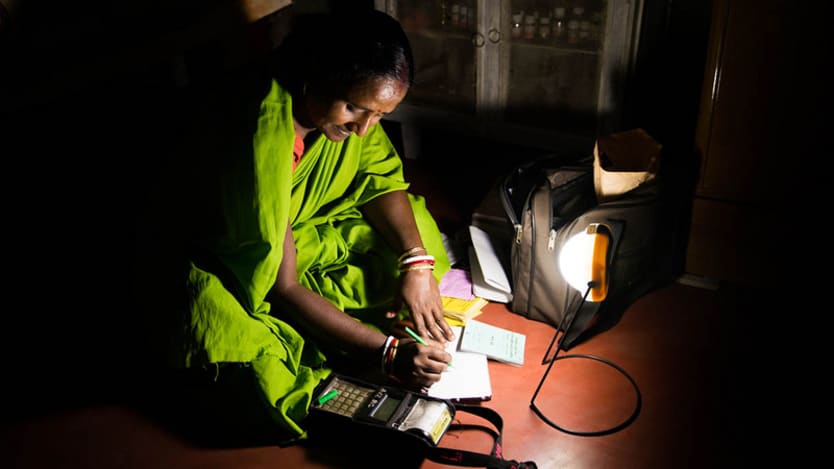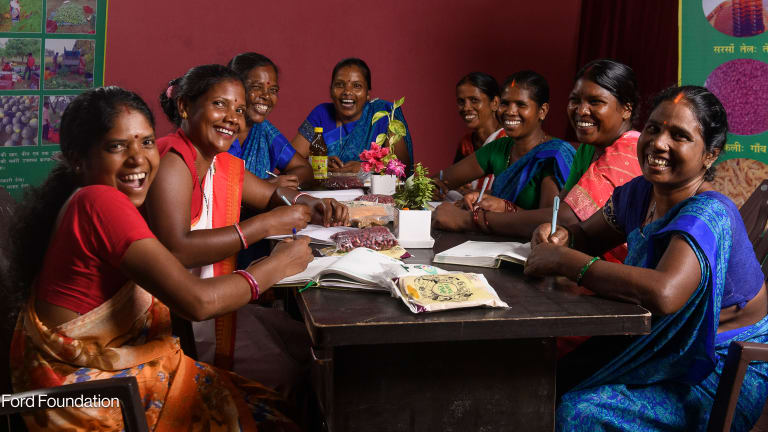
WASHINGTON — Rockefeller Foundation President and former USAID Administrator Rajiv Shah said Monday, the development community needs to rethink the way it defines poverty so it is based on measuring energy connectivity.
“Power and electricity are really the baseline for development and poverty reduction, and we at the Rockefeller Foundation believe that we should look very carefully at redefining poverty in energy consumption terms,” Shah said at an event in Washington.
“The standard measures of global poverty are still measured ultimately in a basket of goods that emanates from total calories mindset. And total calories is probably not the right measure anymore of what poverty really is and energy consumption might be.”
Three hundred million people in India still don’t have access to power, and the Rockefeller Foundation’s Smart Power for Rural Development is a $75 million program that works to build partnerships around decentralized renewable energy solutions. Launched in 2015, it brings together energy services companies, local and national governments, businesses, and technical experts to build minigrids that use solar energy to power villages.
Facebook, Google, NGOs: Collaborators on the connectivity challenge
As the drive to close the digital divide turns some of the world's biggest technology competitors into collaborators, what can the global development community contribute to the effort?
In India, over 100 villages that previously had little to no access to electricity are now powered by Smart Power, benefitting 65,000 people, Shah said. Efforts were focused in the states of Jharkhand, Bihar, and Uttar Pradesh because less than 10 percent of rural households there were connected to the national grid.
Improved connectivity can especially benefit women because they can gain access to more small business opportunities. They are then able to pass opportunities on to their children.
“Electrification in particular is used to help kids both go to school and read at night,” Shah said. “It just starts that positive cycle of improving human productivity, using that access, freed up productivity for ever better causes. The more women-centric these efforts are, the more effective you are at getting that productivity effect to drive real human development for families.”
The Indian government has a goal of increasing access to energy — Prime Minister Narendra Modi pledged that all Indian households will have access to electricity by March 2019 — which Shah said is key to the success of connectivity initiatives. Without political will and resources from a government, all of the world’s 1 billion people who lack regular access to electricity will not be able to turn the lights on, Shah said.
Investment in minigrids can accelerate the access to distributed renewable energy solutions in rural communities, Shah said, and eventually, the cost will decrease as connectivity spreads.
“You can’t wait 25 years for the grid to reach a rural village in India or Myanmar or in Kenya,” Shah said. “That can be a vision for bringing power to a billion people much, much, much more quickly than the path that we’re otherwise on … That probably is the path to ending poverty in a much more sustainable, meaningful and robust way than any other choice we could make in global development.”
Search for articles
Most Read
- 1
- 2
- 3
- 4
- 5








